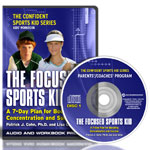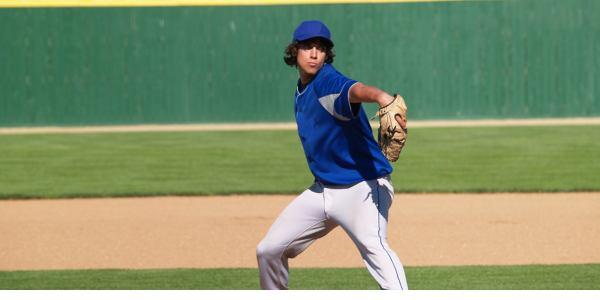Sports Kids Who Can’t Let Go of Mistakes
In the popular book, “The Art of Racing in the Rain,” one of the main characters—a racecar driver—talks about the importance of “having no memory” while competing.
“Memory is time folding back on itself. To remember is to disengage from the present,” the book says.
Here at the Ultimate Sports Parent and Kids’ Sports Psychology, we agree with this idea. Looking back—especially at past mistakes—isn’t a good idea while competing.
Read on to learn why you should help your young athletes stay in the present—and how you can do it.
First of all, when young athletes dwell on their mistakes, they’re focused on the past. A bad past. That’s a mental game no-no.
Dwelling on past mistakes will only sink kids’ confidence.
Kids often will criticize themselves for making the mistake, then pressure themselves to perform better. They get frustrated if they don’t perform as well as they told themselves they ought to.
You don’t want kids to think about the future, either. If they focus on the future, they’re generally worrying about the score, statistics, or outcomes.
Again, they will often pressure themselves to score a certain number of points or achieve great feats to ensure the team doesn’t lose. And once again, that pressure will only undermine their performance.
That leaves us with the present. That’s where you want kids to be when they’re competing or performing. To help kids focus on the here-and-now, help them establish mini or “process goals”. They should concentrate on both mental game and performance mini goals.
For example, a child could visualize a serve before serving the ball in tennis and then concentrate on making that mental picture a reality. A baseball player could commit to the pitch.
Mental game process goals are very important.
For example, they might commit to letting go of the last play. Or they could commit to engaging only in positive self-talk. That means ensuring the little voice inside their heads is positive.
Instead of telling themselves, “I’m too small to make this play,” they might say, “I’m great at teamwork, and that’s going to make this play a success.”
When sports kids focus on these types of goals, they stay grounded in the moment and are less likely to worry about the score or win (the future) or to dwell on their mistakes (the past).
Want to learn more about how to help kids focus on the present, improve their confidence and boost your sports parenting skills? At Kids’ Sports Psychology, we’ve got many resources for parents, coaches and young athletes.
For example, if you’re already a Kids’ Sports Psychology member, you or your kids can download for free the e-book, “Focus to the Max!” which is written specifically for young athletes.
You can also access audio interviews with youth sports experts, our video analysis of young athletes from around the country, articles, how-to videos and much more.
Take a tour of Kids’ Sports Psychology today:
Kids’ Sports Psychology
P.S. If you’re already a Kids’ Sports Psychology member, you can visit this page to access the e-book, “Focus to the Max!”
“Focus to the Max!” Concentration e-book for Young Athletes
Related Articles on Youth Sports:
- Helping Sports Kids with “What if” Thinking
- Helping Sports Kids Build Stable Confidence
- How Self-Talk Can Help Athletes When Losing a Game
*Subscribe to The Sports Psychology Podcast on iTunes
*Subscribe to The Sports Psychology Podcast on Spotify
Help Your Young Athletes Improve Focus In Sports!

Are your young athletes easily distracted by people shouting on the sidelines? Do they obsess over their mistakes? Do they worry about what people think of them?
These issues will cause their concentration and performance to suffer!The Focused Sports Kid helps kids overcome distractions that can hurt their performance in sports.
The Focused Sports Kid program is actually two programs: one for sports parents/coaches that provides mental game tips especially designed for parents and coaches, and for young athletes, ages 8 to 12, that will walk them through 7 simple lessons in mental focus in sports.

